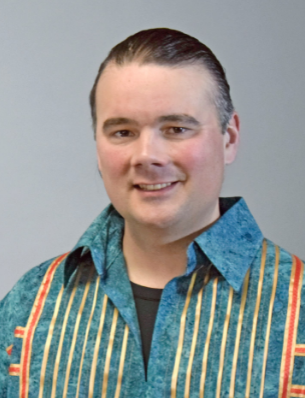WASHINGTON — The U.S. Committee on Indian Affairs on Wednesday afternoon will host a hearing to consider President Biden’s nomination of Principal Deputy Assistant Secretary for Indian Affairs Bryan T. Newland to serve as Assistant Secretary for Indian Affairs at the U.S. Dept. of the Interior (DOI).

Newland is a tribal citizen of the Bay Mills Indian Community, based in Brimley, Mich., and most recently served as its president. More than 30 tribes and tribal organizations, including the United South and Eastern Tribes, the National Congress of American Indians, and the Alaska Federation of Natives, submitted letters in support of Newland’s confirmation.
Want more Native News? Get the free daily newsletter today.
As DOI’s highest-ranking Senate-confirmed official in Indian Affairs, the position of Assistant Secretary for Indian Affairs is charged with maintaining the government-to-government relationships with sovereign tribal nations, respecting tribal sovereignty, and promoting tribal self-determination.
WHAT: Schatz to lead Senate Committee Indian Affairs Nomination Hearing.
NOMINEE: Mr. Bryan Newland to serve as Assistant Secretary for Indian Affairs at the Department of the Interior.
WHEN: Wednesday, June 9, 2021 at 2:30 p.m. - EDT
HOW TO JOIN: Access the live stream here.
More Stories Like This
Native News Weekly (August 25, 2024): D.C. BriefsUS Presidents in Their Own Words Concerning American Indians
Ethics Complaint Alleges Former Navajo Nation Chief of Staff Accepted Gifts From Contractor
Monday Morning (December 14, 2025): Articles You May Have Missed This Past Weekend
Native News Weekly (December 14, 2025): D.C. Briefs
Help us defend tribal sovereignty.
At Native News Online, our mission is rooted in telling the stories that strengthen sovereignty and uplift Indigenous voices — not just at year’s end, but every single day.
Because of your generosity last year, we were able to keep our reporters on the ground in tribal communities, at national gatherings and in the halls of Congress — covering the issues that matter most to Indian Country: sovereignty, culture, education, health and economic opportunity.
That support sustained us through a tough year in 2025. Now, as we look to the year ahead, we need your help right now to ensure warrior journalism remains strong — reporting that defends tribal sovereignty, amplifies Native truth, and holds power accountable.
 The stakes couldn't be higher. Your support keeps Native voices heard, Native stories told and Native sovereignty defended.
The stakes couldn't be higher. Your support keeps Native voices heard, Native stories told and Native sovereignty defended.
Stand with Warrior Journalism today.
Levi Rickert (Potawatomi), Editor & Publisher

